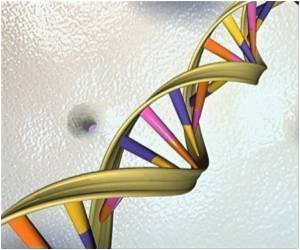Researchers from Brown University and the University of California San Francisco have said that epigenetic changes to DNA in breast cancers are directly linked with diet

The use of epigenetic profiles as biomarkers of disease subtype and severity is a rapidly emerging field with other notable contributions from this group- a field that is being advanced with the support of the NIH, and shows promise for developing novel clinical tools.
"We undertook this study to help illuminate how diet and environmental factors might contribute to differences observed among breast cancers," said Brock Christensen of the Center for Environmental Health and Technology (CEHT) at Brown University and lead author of the report.
The study measured epigenetic profiles in stage I to IV breast tumors from 162 women enrolled in the Pathways Study, a study of breast cancer survivorship based at Kaiser Permanente of Northern California.
The researchers took a detailed assessment of an individual's demographic and dietary information, as well as breast cancer tumour characteristics.
The study's data show the promise of tumour epigenetic signatures to provide more detailed tumour staging, and eventually prediction of prognosis. In particular, the study found that alcohol consumption, folate intake (vitamin B9), and tumour size are each independently associated with epigenetic profiles of tumours.
Epigenetics refers to the control of patterns of gene expression in cells, which give rise to the necessary differences responsible for creating the complex and interacting tissues in the body.
The study is published in today's edition of PLoS Genetics.
Source-ANI
 MEDINDIA
MEDINDIA



 Email
Email










